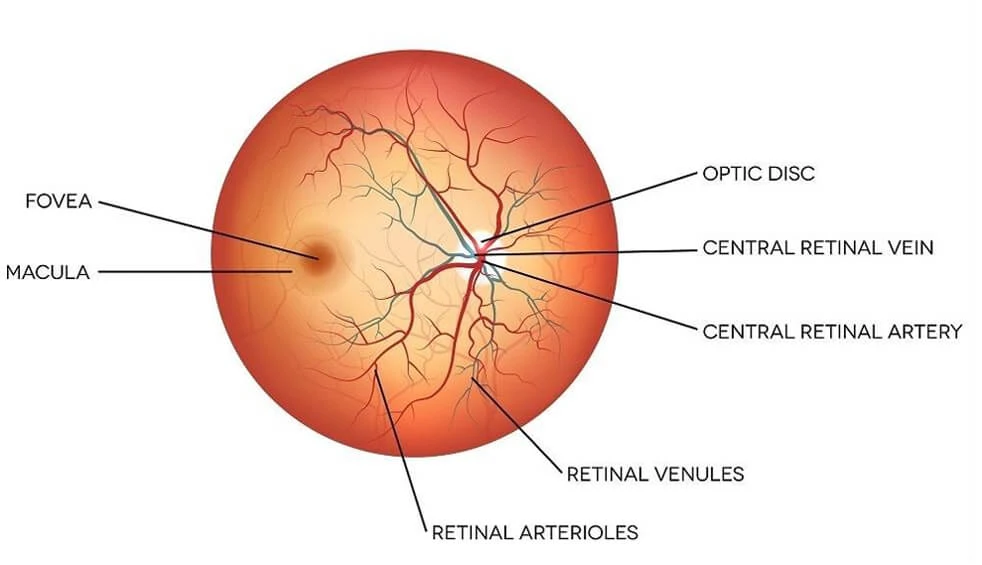Retinal Eye Exam
What is Retinal Eye Exam?
A retinal eye exam is a comprehensive evaluation of the retina, which is the light-sensitive tissue located at the back of your eye. The purpose of a retinal eye exam in Miami is to assess the health and condition of the retina, as well as detect any signs of potential eye diseases or abnormalities.
The retinal exam is a non-invasive and painless procedure that typically takes around 30 minutes to an hour, depending on the complexity of the examination and the need for additional tests.
At Eyes on Brickell, we take pride in offering a wide range of services to cater to our patients’ diverse eye care needs. One of our key services is Diabetic retinal eye exams, a comprehensive assessment that provides invaluable insights into the health of your eyes. Our team consists of highly trained and experienced professionals who are dedicated to providing exceptional eye care services. Our clinic is equipped with state-of-the-art technology and diagnostic tools to ensure accurate and detailed evaluations of your retinal health.

During the exam, our Retina Macula Specialists in Miami will meticulously examine the intricate structures of your retina, including the blood vessels, optic nerve, and macula. By carefully evaluating these areas, we can detect early signs of conditions such as diabetic retinopathy, macular degeneration, glaucoma, and other retinal disorders. Our advanced imaging technology allows us to capture high-resolution images of your retina, aiding in the accurate diagnosis and monitoring of any potential abnormalities or changes over time.
Regular eye exams are vital for maintaining optimal eye health, even if you currently do not experience any vision problems. Many eye conditions, including those that can lead to vision loss, often develop without noticeable symptoms in their early stages. By undergoing a routine Retinal Screening Eye Exam, our best retina doctor in Miami can take proactive steps towards preserving your vision and detecting any potential issues at their earliest, most treatable stages

At Eyes on Brickell, our retina consultants of Miami prioritize your comfort and understanding throughout the entire eye exam process. Our friendly staff will guide you through each step, ensuring that you feel relaxed and informed. Should we detect any concerns during the examination, our retinal eye examination team will discuss the findings with you in detail, answer any questions you may have, and create a tailored treatment plan to address your unique needs.
Investing in a Comprehensive Eye Exam at Eyes on Brickell is an investment in your long-term eye health. Our dedicated team of diabetic retinopathy specialist, advanced technology, and patient-centered approach make us your trusted partner in maintaining clear vision and preserving the health of your eyes. Contact us today to schedule your comprehensive eye exam and take a proactive step toward safeguarding your vision.
What Happens During The Exam?
During Retinal Exams for Diabetics, the optometrist or ophthalmologist along with best retina specialist in Miami will perform a series of tests and procedures to thoroughly evaluate the health and condition of your retina. Here is an overview of what typically happens during this eye exam:
- Patient History: A feeling of dryness in the eyes is the most common symptom of Dry Eye Disease. It may feel like there is something in your eye or that your eye is rough or scratchy.
- Visual Acuity Test: This test measures the sharpness and clarity of your vision using an eye chart. You will be asked to read letters or symbols of different sizes from a specific distance.
- Pupil Dilation: To obtain a better view of the retina, the eye care professional may administer eye drops that cause your pupils to dilate (widen). Dilation allows more light to enter the eye and enables a more thorough examination of the retina’s structures.
- Slit-Lamp Examination: Using a specialized microscope called a slit lamp, the doctor will examine the front structures of your eye, including the cornea, iris, and lens. This evaluation helps assess the overall health of your eye and rule out any abnormalities that may affect the retina.
- Ophthalmoscopy: The optometrist or ophthalmologist will use an ophthalmoscope, a handheld instrument with a light source and magnifying lenses, to examine the interior structures of your eye. Retina specialist in Miami, FL will carefully examine the retina, optic nerve, blood vessels, and macula for signs of disease, damage, or abnormalities.
- Retinal Imaging: Advanced imaging technologies, such as optical coherence tomography (OCT) or fundus photography, may be used to capture detailed images of the retina. These images provide a cross-sectional view of the retina, allowing for a more in-depth analysis and detection of any abnormalities.
- Additional Tests: Depending on your specific needs and the findings of the initial examination, additional tests may be conducted. These may include fluorescein angiography, which involves injecting a dye into your arm to evaluate blood flow in the retina, or visual field testing to assess your peripheral vision.
Throughout the exam, the eye care professional will explain the procedures, answer any questions you may have, and provide insights into the health of your retina.



